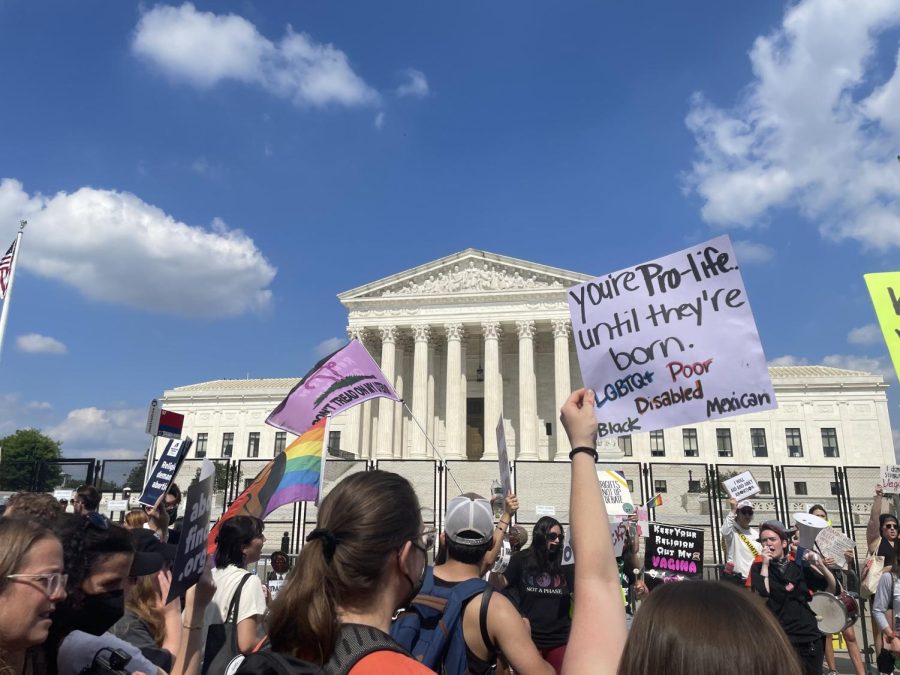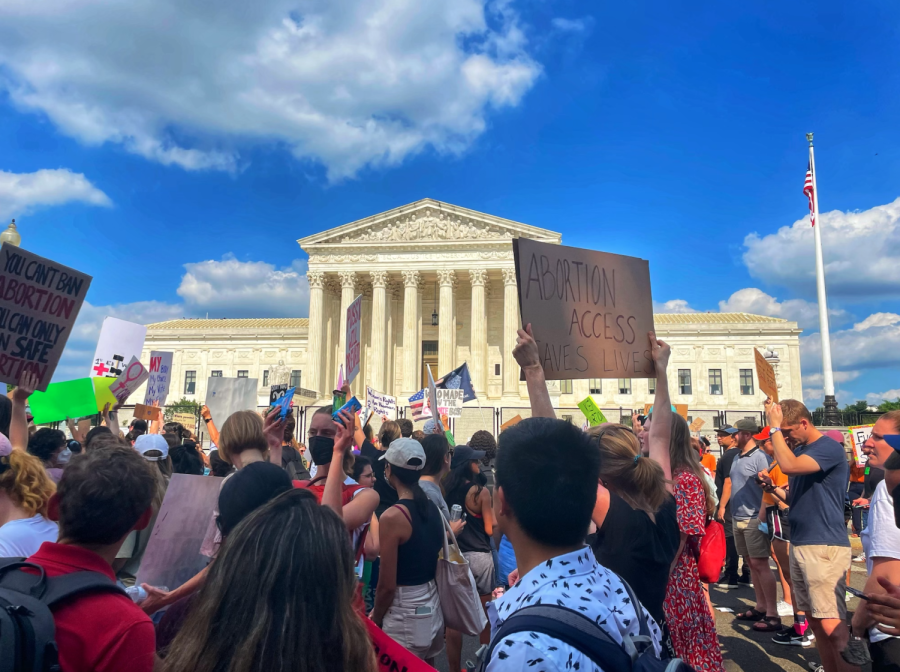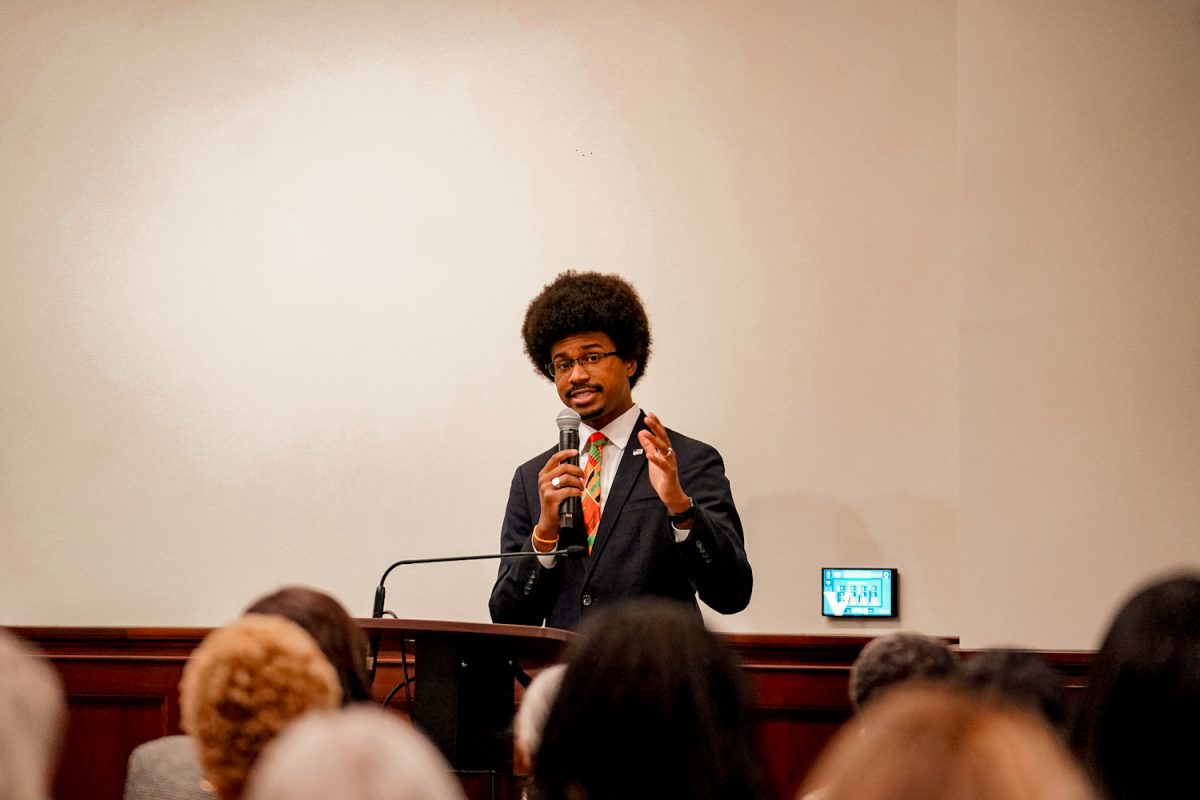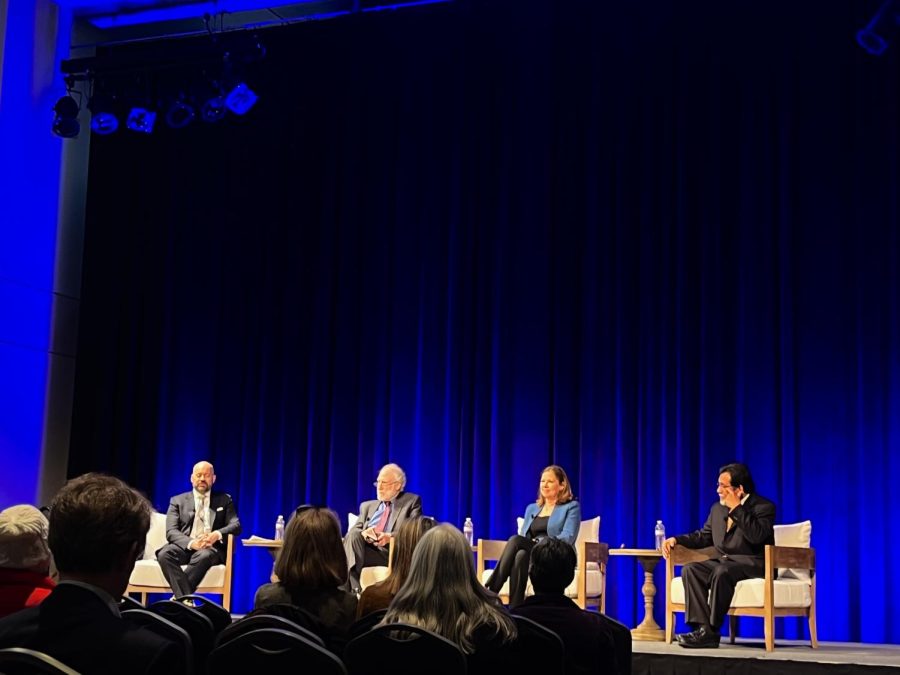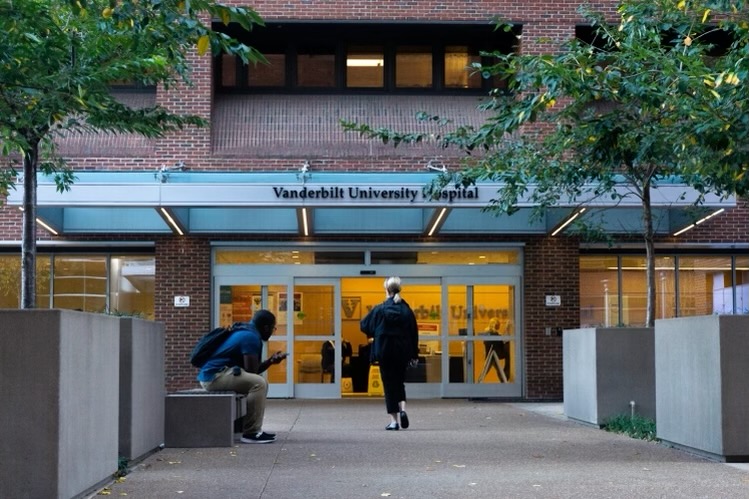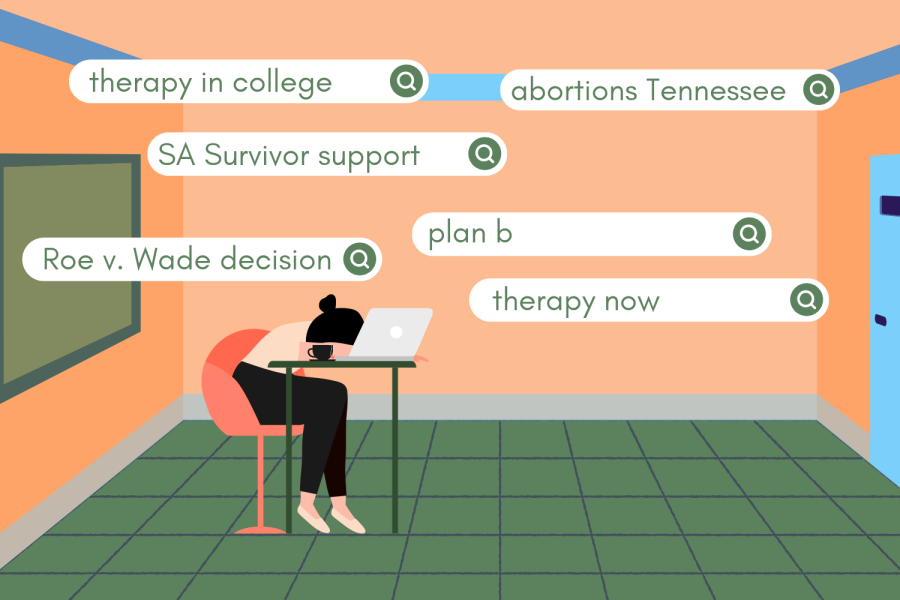The U.S. Supreme Court (SCOTUS) voted to overturn Roe v. Wade (1973) in a 6-3 verdict announced on June 24, abolishing the constitutional right to receive an abortion. Vanderbilt administrators and students responded to the decision with concern and promises to take action.
The ruling leaves the legality and parameters of abortion up to each state. As a result, abortion rights are set to be severely restricted or fully revoked in at least 22 states. Of those states, 13—including Tennessee—have “trigger laws” that were previously enacted as state law and designed to go into effect immediately after the right to abortion is no longer constitutionally protected. Tennessee’s “Human Life Protection Act” (SB 1257), which will go into effect on July 24, bans all abortions except those necessary to prevent death or “substantial and irreversible impairment of major bodily function.”
To hasten the timeline with which Tennessee’s near-total abortion ban goes into effect, Tennessee Attorney General Herbert Slatery filed an emergency motion in the U.S. 6th Court of Appeals to lift an injunction that currently blocks the state’s “heartbeat bill.” Should the injunction be lifted, a ban on abortions sought after six weeks into pregnancy would go into effect immediately instead of on July 24.
The Knoxville Center for Reproductive Health (KCRH), which has seen a “demand surge” after Planned Parenthood Knoxville was destroyed in an act of arson, announced on June 24 that all abortion services at the center would be suspended while they “assess the continued legality of abortion in Tennessee.”
Ashley Coffield, CEO of Planned Parenthood of Tennessee and North Mississippi, said that the Planned Parenthood Nashville and Memphis locations would continue offering abortion services for as long as legally permitted. However, the “Abortion” page on Planned Parenthood Nashville’s website is no longer available as of June 25. The organization has created a patient navigation and assistance program to mitigate the impact of financial and logistic barriers on those who will have to seek out-of-state abortions in the near future.
Abortion Access Nashville organized a urgent call-to-action protest against the decision on June 24 at the Legislative Plaza in Downtown Nashville. Participants wore green and brought signs that read “Abortion is Healthcare,” “MY BODY MY CHOICE” and “Girls Just Wanna Have Fun(damental Human Rights).”
“Although the protest alone didn’t rid me of the devastation and anger I feel due to the choice of stripping away the right to control my own uterus, seeing so many people who believed in the same human right as me was empowering and gave me a bit of hope in the face of constant disappointment from our government,” protest attendee and senior Kerissa Bryant said.
In a June 24 email to the Vanderbilt community, Chancellor Daniel Diermeier recognized the “enormous implications” of how the Supreme Court’s decision will affect people in Tennessee. Diermeier also announced the creation of a task force to address the ruling. The stated goal of the group is to evaluate the impact of the statewide abortion ban and to provide a platform for discussions surrounding policy in the wake of the verdict.
“We remain steadfast in our commitment to support women’s health and the safety and well-being of our community and to create a supportive and inclusive environment for educational success,” Diermeier said in the email.
Vanderbilt University Medical Center (VUMC) released a statement on June 24 acknowledging the court’s decision and its “substantial negative health implications” for women in Tennessee.
“VUMC will soon begin instituting policy changes intended to mitigate some of the health care and health equity concerns that are anticipated due to changes in the law,” the statement reads.
VUMC did not respond to The Hustler’s request for comment regarding the specifics of these policy changes or the ramifications for Vanderbilt students. The Student Health Center was also unable to immediately comment on the topic.
Milani Naik, a sophomore and executive board member of Vanderbilt’s Generation Action for Planned Parenthood, addressed the health disparities that she states will be exacerbated as an outcome of the ruling.
“We must acknowledge the fact that not only are we affected as individuals, but this decision will continue to disproportionately affect healthcare for Black, Brown, and low-income people who may not have the privilege to leave the state,” Naik said in a message to The Hustler. “It is in this time that we all need to examine our own privileges and give or volunteer where we can and participate in equitable action to support all people with uteruses.”
Vanderbilt’s For Every Life group did not respond to The Hustler’s requests for comments.
Vanderbilt College Republicans President and senior Shane Mumma praised the Court’s verdict.
“We’re incredibly elated with the Supreme Court’s decision to send the issue of abortion back to the states, as this issue had been for nearly two centuries prior to Roe v. Wade,” Mumma said. “By reversing Roe’s disastrous decision that invented a constitutional right that the Court has ruled was never there, the American people and our representatives are now free to enshrine protections for the unborn and codify the right to life.”
Mumma added that he believes the decision bodes well for the Tennessee midterm elections this fall.
“We look forward to supporting our Pro-Life, Republican politicians this November in what is likely to be a massive Red Wave in the midterm elections,” Mumma said. “We’re also excited for states across the country to enact laws protecting life, such as Vanderbilt’s own great state of Tennessee.”
On the other hand, Vanderbilt College Democrats President and junior Claire Reber expressed disappointment in the decision and its implications for future rulings. In his concurring opinion, Supreme Court Justice Clarence Thomas suggested that the court should “reconsider all of [its] substantive due process precedents, including Griswold, Lawrence, and Obergefell.” This remark has since raised significant concerns about the constitutional protections guaranteed by these cases, including contraception, sodomy and same-sex marriage, respectively.
“Vanderbilt Democrats are sickened by the shameful precedent set by the overturning of Roe v. Wade, alongside the ongoing threat to reproductive rights, LGBTQ+ rights and civil rights expressed in the decision,” Reber said. “Several TN clinics are already limiting abortion access in preparation for the ban.”
Vanderbilt Lambda Association member and sophomore Qwynn Foster similarly expressed concern over these implications.
“The overturning of Roe v. Wade and Planned Parenthood v. Casey marks a dangerous trajectory for American politics and a major setback to decades of women’s rights to bodily autonomy,” Foster said. “This also sets us up for challenges to other Supreme Court cases that rely on similar precedent.”
Sophomore Olivia Quiroga echoed Foster’s comments and urged Vanderbilt administrators to engage in dialogue about the decision.
“This ruling is devastating in both what it means for society now and what it means for our future,” Quiroga said in a message to The Hustler. “We need to be wary of the repeal of decisions such as marriage equality and legal contraception. I encourage Vanderbilt administration to continue to speak on this topic as it affects Tennessee and a large part of its student body.”
Vanderbilt Political Science Association President Maddie Amberg, a senior, expressed her frustration about the ramifications of the ruling on women nationwide.
“Roe being overturned signifies that women (and anyone with a uterus) are seen as less than, as nothing more than vessels for reproduction,” Amberg said. “As someone who has been told by my doctors that I would likely die if I were to become pregnant, I am afraid for my future and the future of all women.”
Amberg also said she believes that abortion should not be allowed only in cases where a pregnancy would result in death.
“It shouldn’t matter if my life is on the line,” Amberg said. “Women should be allowed the fundamental human right of choosing what happens to their bodies regardless of the situation.”
In a June 24 letter sent to graduate students and obtained by The Hustler, Graduate Student Council (GSC) Vice President Kyra Smart, a third-year graduate student, said the decision could result in other threats to pregnant women besides pregnancy-related mortality risks.
“In addition to pregnancy-related mortality risks, the most common cause of death for pregnant women in America is homicide, typically due to domestic violence—an often-cited reason for seeking an abortion,” the letter reads.
In light of the decision and Tennessee’s abortion policies, a junior being kept anonymous for health privacy reasons said she is considering scheduling immediate health procedures in case of future reproductive health needs.
“I, and many other women, am considering making a semi-permanent decision to get an IUD or an implant—subjecting my body to hormones and chemicals it does not need—for fear that I will not be able to access proper care if I find myself in a situation where I need emergency contraception,” the student said.
Sophomore Dylan Garwick criticized the verdict and offered several alternatives to outlawing abortion which he thinks are more effective for lowering abortion rates, including comprehensive sex education, increased access to birth control and contraceptives and addressing sexual assault at the systemic level.
“Whatever happened to the concepts of severability or stare decisis?” Garwick said in a message to The Hustler. “Today is going to go down in history books as one at which people look back and ask, ‘Wow, why did they ever do that?’”
Reber offered avenues for concerned students to take action.
“Volunteer and donate to local organizations such as Planned Parenthood of Middle TN, Healthy and Free TN, and abortion funds. Protest and join rallies in the cities closest to you. Call your elected officials. Reach out to VCD and other student orgs at Vanderbilt, such as PP Generation Action, to help you facilitate your needs,” Reber said.







